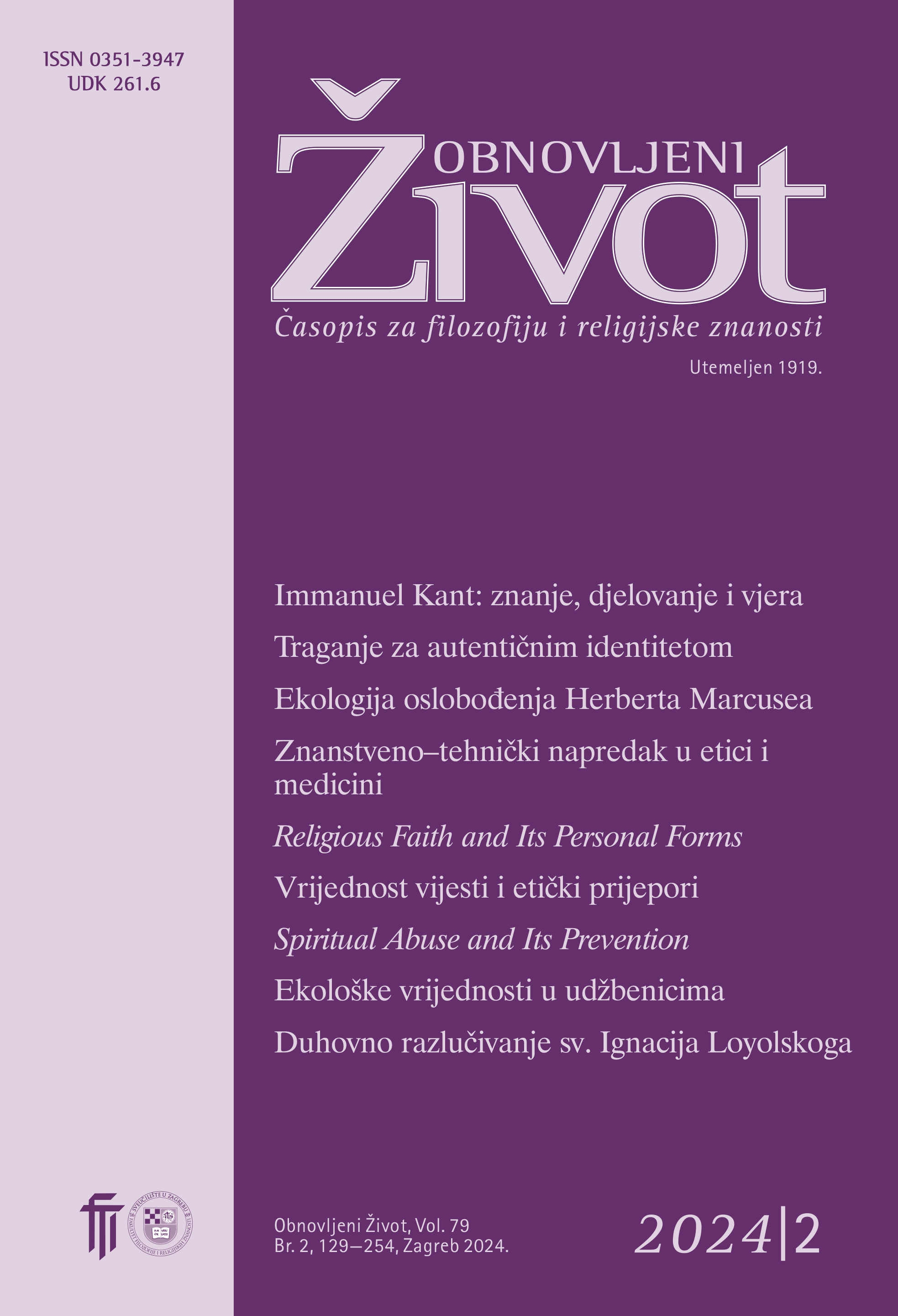Religious Faith
Personal Forms of Presentation
Keywords:
religious faith, confidence and trust, dialogue, psychotherapeutic effect, stability of religious faithAbstract
The article deals with the peculiarities of religious faith as seen through the prism of its manifestation in a person. These manifestations are expressed in existential– soteriological and dialogical presentational forms, through which a psychotherapeutic effect occurs in the individual. In the biblical context, faith is seen as an existential foundation for life actions, a source of confidence in one’s existence and salvation. Special emphasis is placed on trust, which serves as a basis for the dialogue between a person and God, a manner of “co–creation” with Him. It is noted that religious faith, by exerting a psychotherapeutic effect, becomes an important tool for resolving life problems. Faith in God, firstly, changes a person’s attitude towards life and death, toward himself and his values; secondly, it shapes positive life strategies, thus making life more fulfilling and meaningful. The positive role of religious faith is emphasized in extreme situations when a person needs to maximize the concentration of his spiritual and physical strength. In summary, religious faith, by expanding a person’s resourceful capabilities, becomes a way for him to accumulate experience and resilience.
Downloads
Published
Issue
Section
License
Jednom prihvaćeni članak obvezuje autora da ga ne smije objaviti drugdje bez dozvole uredništva, a i tada samo uz bilješku da je objavljen prvi put u Obnovljenom životu. Uredništvo će obavijestiti autora o prihvaćanju ili neprihvaćanju članka za objavljivanje.
Članci objavljeni u časopisu se, uz prikladno navođenje izvora, smiju besplatno koristiti u obrazovne i druge nekomercijalne svrhe.


